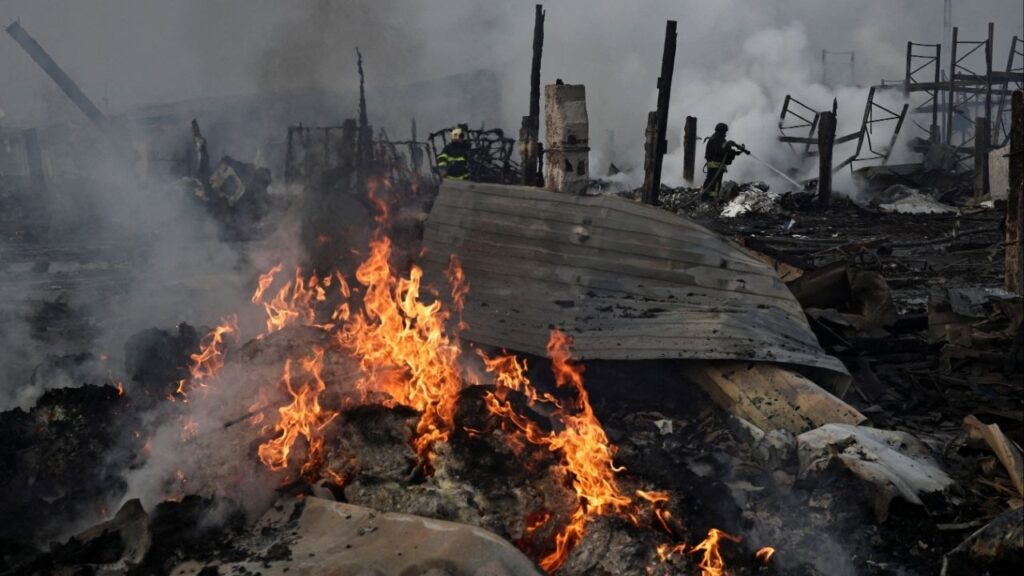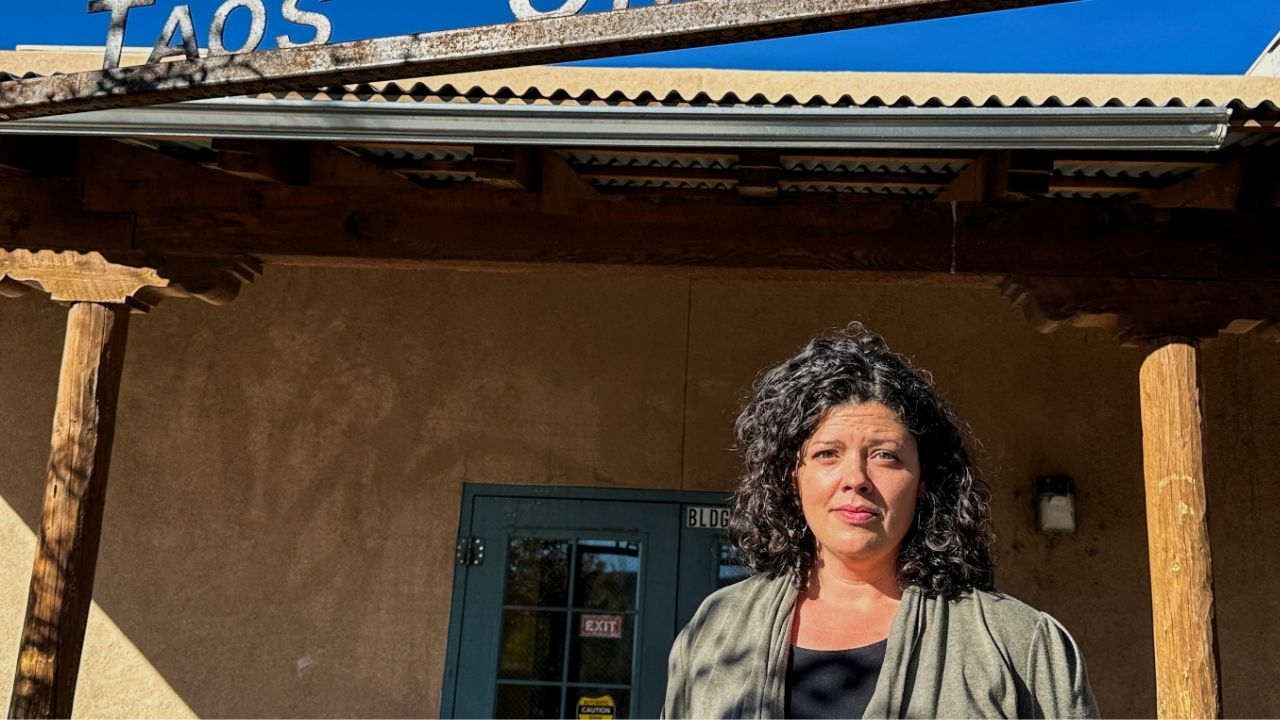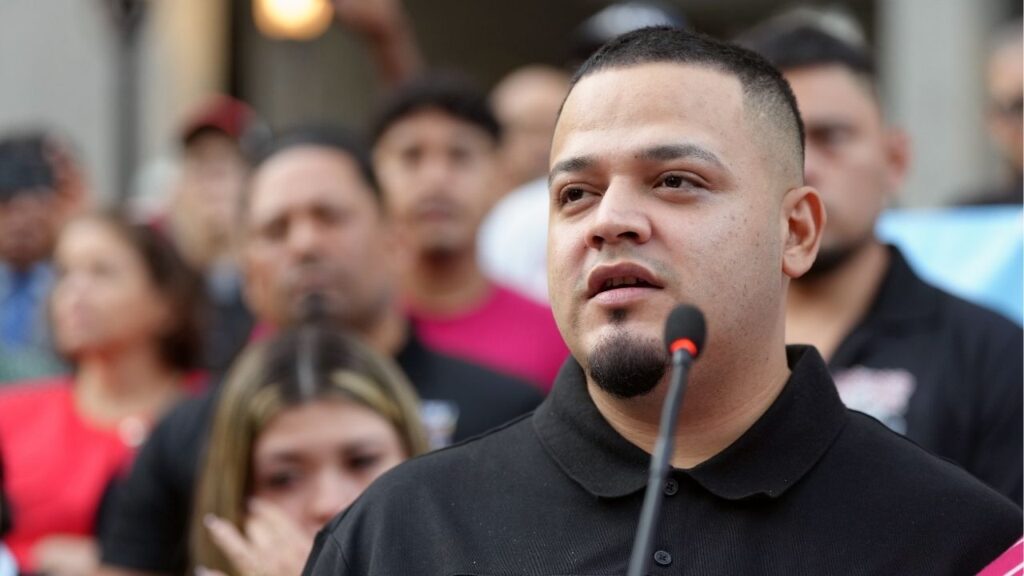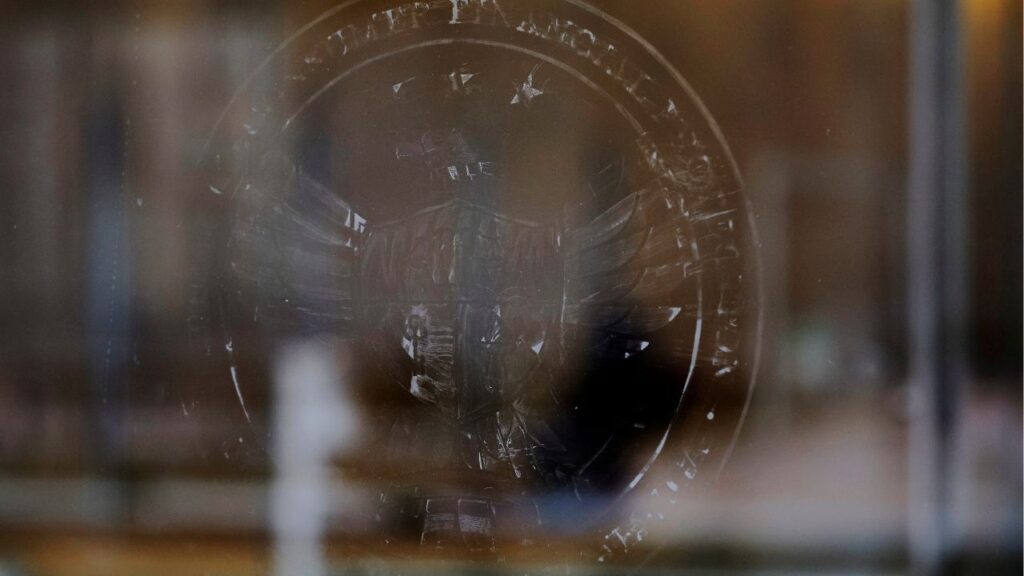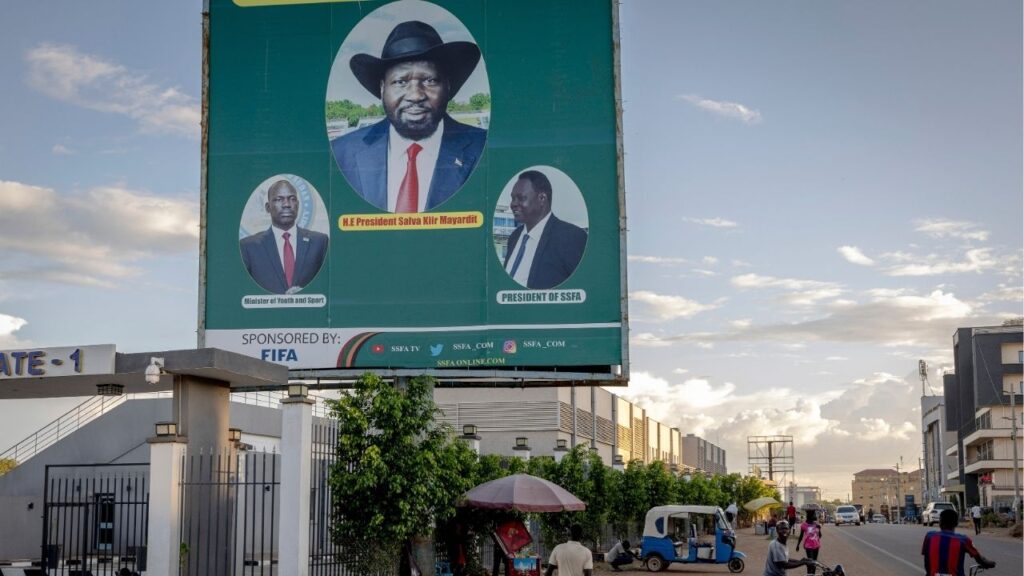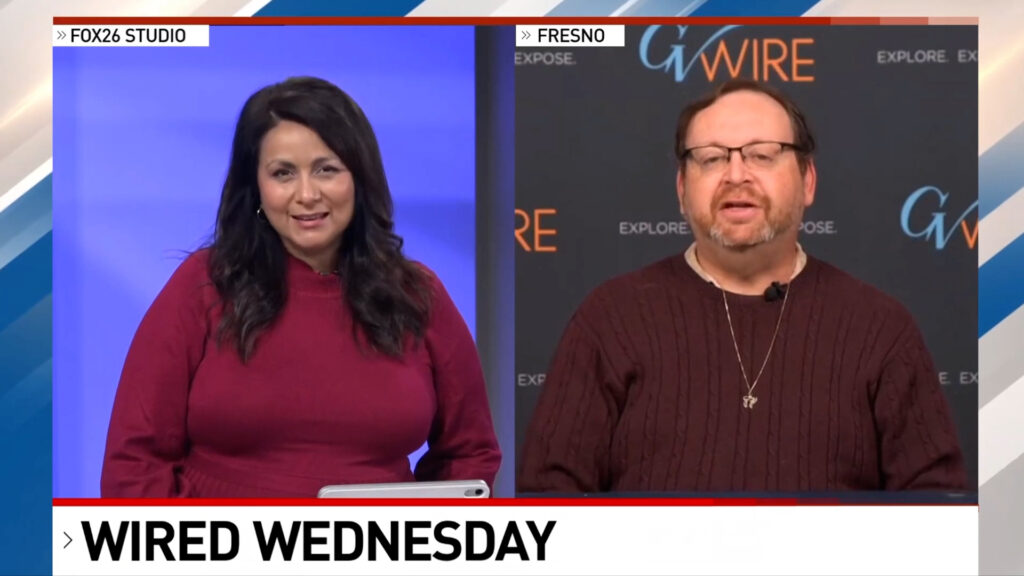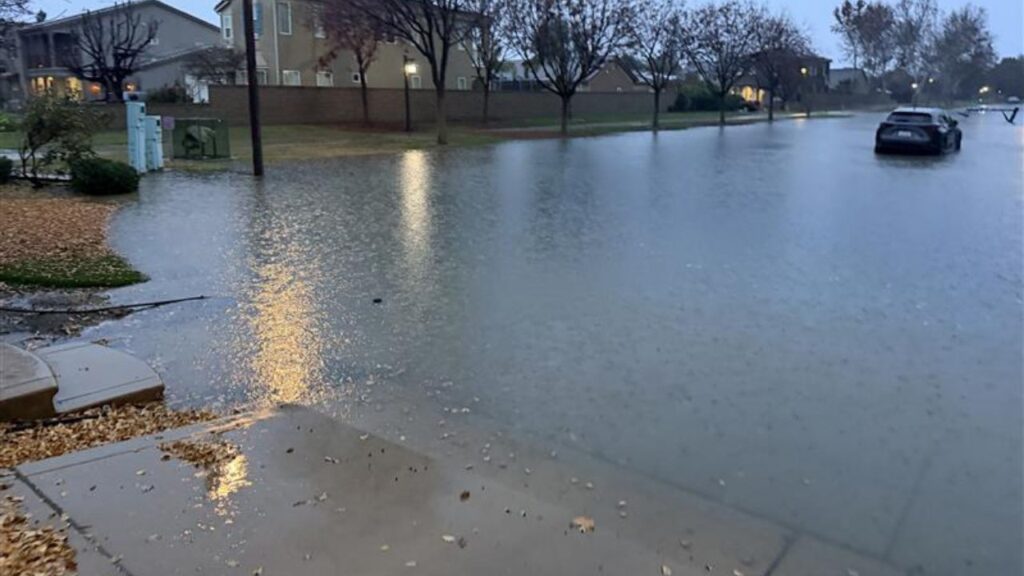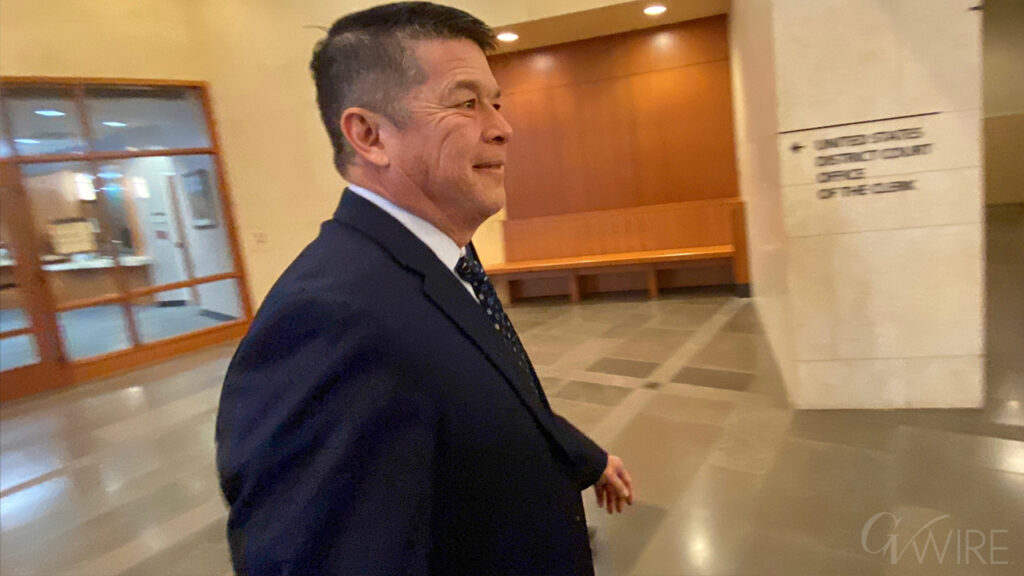Allyson O'Brien, a special education teacher who stands to save about $12,000 a year in child care costs starting Nov. 1, when New Mexico becomes the first U.S. state to offer free universal child care, poses for a photograph outside of the Taos Charter School, in Taos, New Mexico, U.S., Oct. 30, 2025. (Reuters/Andrew Hay)
Share
|
Getting your Trinity Audio player ready...
|
TAOS, New Mexico — New Mexico became on Saturday the first U.S. state to offer free child care to all residents in a bid to boost its economy and lift education and child welfare levels ranked the worst in the country.
Under the program, families, regardless of income, can receive state vouchers to cover public and private child care fees. It culminates efforts New Mexico has made to expand access to free child care since the governor and state legislature created the Early Childhood Education and Care Department in 2019.
The launch comes as other Democratic-run states, cities and counties eye a step popular among working families. Connecticut recently passed a bill making child care free for those families earning under $100,000 per year and no more than 7% of income for those earning more. New York mayoral candidate Zohran Mamdani has proposed no-cost universal child care.
Big Savings for Families
Taos special education teacher Allyson O’Brien expects to save around $12,000 a year in child care bills for her son Otis, who is nearly 2-1/2. She and her husband Shawn O’Kelly, a truck driver, earn a fraction above New Mexico’s previous income cap for free child care, which was about $129,000 per year for their family of four.
“We’ll be able to go on vacation, we won’t have to decide what bills we’re going to pay, like, are we going to do propane or the mortgage?” O’Brien said.
To achieve a fully universal system, New Mexico must create nearly 14,000 more child care slots and recruit 5,000 educators, according to its Democratic-run government. The state is establishing a $12.7 million low-interest loan fund to construct and expand child care facilities. It is also increasing reimbursement rates to providers that pay entry-level staff a minimum of $18 per hour, above the state’s $12 hourly minimum wage, and offer full-time care.
Alison McPartlon, director of the University of New Mexico-Taos Kids’ Campus child care center, said her waiting list is so long some children do not get in before they start kindergarten. She said higher reimbursement rates will help her retain and recruit educators.
“There will be more centers coming up,” said McPartlon, describing the shift to universal child care as “incredible.”
Addressing Poverty
New Mexico Governor Michelle Lujan Grisham told reporters child care was “the backbone of creating a system of support for families that allows them to work, to go to college, to do all the things they need to do to continue to lift New Mexico out of poverty.”
Nearly 18% of New Mexicans live below the poverty line, according to the U.S. Census, making it one of the poorest states. Slightly larger in area than the United Kingdom, with only 2.1 million people, New Mexico is paying for universal child care primarily through funds generated by its oil and gas sector, the second-biggest of any state.
Research shows quality child care lifts education outcomes, especially among low-income families, according to Philip Fisher, a professor of early childhood learning at Stanford University.
Reading levels of New Mexican students fall far below the national average when children are first tested around age 8 or 9, according to studies by Neal Halfon, professor of pediatrics at the University of California, Los Angeles.
The Annie E. Casey Foundation has, for years, ranked New Mexico last among states in both education and child well-being.
New Mexico joins countries such as Norway and Belgium that offer free universal child care for children under 3, and Bulgaria, where early childhood education is free for all children until elementary school. New Mexico is going further by offering no-cost child care for children up to age 13.
Critics such as New Mexico State Representative Rebecca Dow, a Republican, say it makes no sense to give wealthier families free child care when they could receive federal tax breaks for child care included this year in President Donald Trump’s One Big Beautiful Bill.
Dow, the founder of a daycare center, said research showed the best place for a young child was at home and the state should give families tax credits for “mom to stay home” with the kids.
“There is no capacity, people are going to be disappointed,” she said of the state’s push for universal free day care.
—
(Reporting by Andrew Hay in New Mexico; editing by Donna Bryson and Rod Nickel)
RELATED TOPICS:
Categories
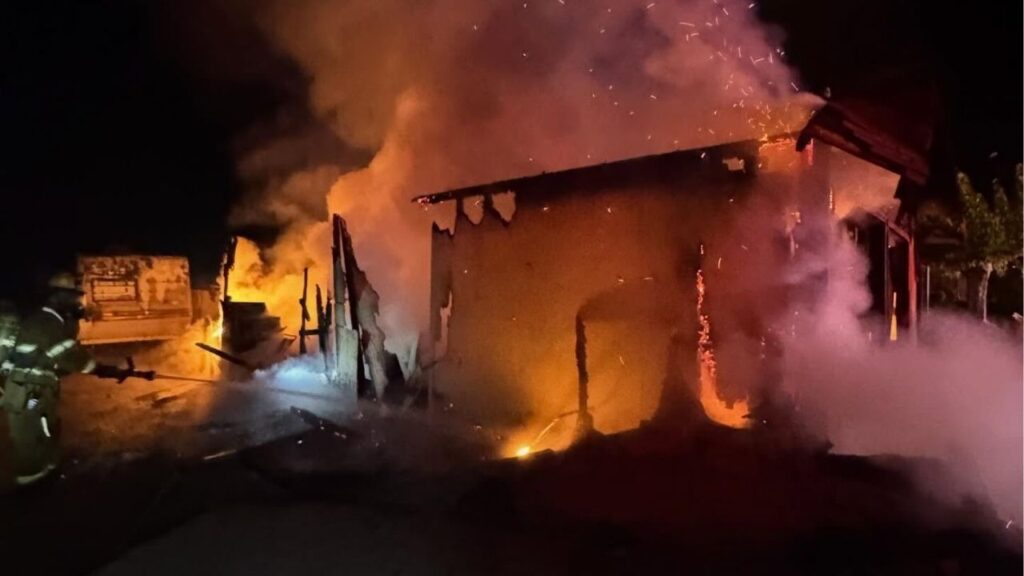
Fresno County Firefighters Contain Reedley House Fire
